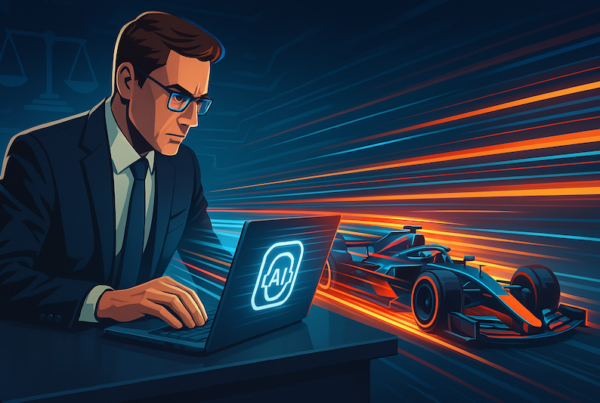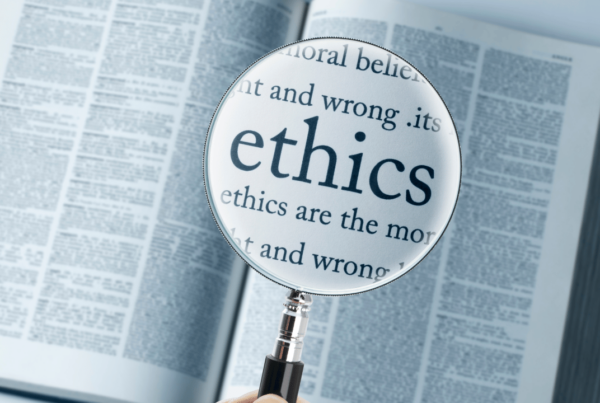ChatGPT helps lawyers in many ways. How does it do this? Let’s begin with the basics.
What Is ChatGPT?
ChatGPT is a type of language processing tool. It creates human-like dialogue to make it seem like you’re having a conversation with another person. That’s not all it can do, though. It can actually help you write content, draft contracts, and find case law.
The basic tier is free to use. However, if you pay for a premium account, you get extra features like enhanced customer support.
How Does Chat GPT in Law Work?
It’s simple to use ChatGPT.
- First, sign up for a ChatGPT account.
- Once you’re logged in, explain to the AI what you need. For example, you might ask it to answer a question on personal injury law.
- Input more questions or add more detail to refine the results.
If you need help implementing AI in your firm, reach out for a chat.
How ChatGPT helps lawyers
Can a content generation tool help the legal profession? Absolutely. Actually, ChatGPT has many possible uses, including:
- Automating your legal writing.
- Completing document reviews and related tasks.
- Performing legal research to build cases.
- Providing basic legal information to clients.
Benefits of Chat GPT for Attorneys
There are many advantages to using ChatGPT for lawyers. Here’s how legal professionals can benefit from this tool.
- ChatGPT can save you time in a busy law firm by providing ready-to-go outlines for common documents.
- ChatGPT can answer simple client questions. You can devote more energy to producing quality work when you’re not spending so much time handling basic queries.
- By providing quick and accurate legal summaries, ChatGPT can help you quickly understand a topic or refresh your memory.
- Need to perform discovery? You can use the AI tool to find the most relevant sources in the shortest time.
Challenges of ChatGPT for Lawyers
Just as ChatGPT offers benefits, it’s not without its challenges.
- AI tools aren’t perfect. You may still need to verify or fact-check certain data before using it to advise clients.
- ChatGPT relies on what it already “knows” to produce results. There’s a risk it will provide you with inaccurate or outdated information.
- Because AI tools lack nuance, they may offer incomplete or overly simplified advice.
- There may be privacy concerns about how AI tools use or create content.
Think of ChatGPT as another tool to help your law firm run smoothly. While it’s imperfect, it’s a huge help in the right circumstances.
ChatGPT in Law School
Can you use Chat GPT in law school? Sure, although there’s some controversy around law students using the AI tool.
For one thing, students can use Chat GPT to generate exam answers. What’s more, chat GPT has already proven that it’s capable of passing law school tests. However, it could be helpful in some ways. Students might use the tool to help them with legal recall, or to outline assignments.
Considering the ethical implications, the legal industry needs to prepare itself for AI’s role in law firms.
How to Use Chat GPT for Lawyers
Chat GPT has so many possibilities for law firms of all sizes. However, here’s how you might use this tool in day-to-day practice.
- Your client comes to you looking for advice. With Chat GPT, you can quickly explain concepts in simple, accessible language.
- You have multiple contracts to draft. Use ChatGPT to generate reliable templates you can fill in.
- Your firm needs legal research help fast. Turn on Chat GPT to perform research and create the documents you need.
These are just some of the ways AI in law can benefit you. Try it for yourself to see just how vast the possibilities are.
Does ChatGPT Replace Lawyers?
No. If you’re an attorney, fear not – ChatGPT won’t replace you. Not in its current form, anyway.
- ChatGPT lacks negotiating and communication skills.
- Although it can help with content creation, the content lacks a personal touch.
- Sure, ChatGPT can solve routine legal issues, but it’s not advanced enough to argue complex points.
Bottom line? Don’t see ChatGPT as competition. See it as a new member of your law firm.
You can focus on managing clients and winning cases. And in the background, ChatGPT can handle a significant chunk of the more mundane legal work for you.
Use technology to radically improve your law practice by focusing on the few core elements that have the biggest impact.






